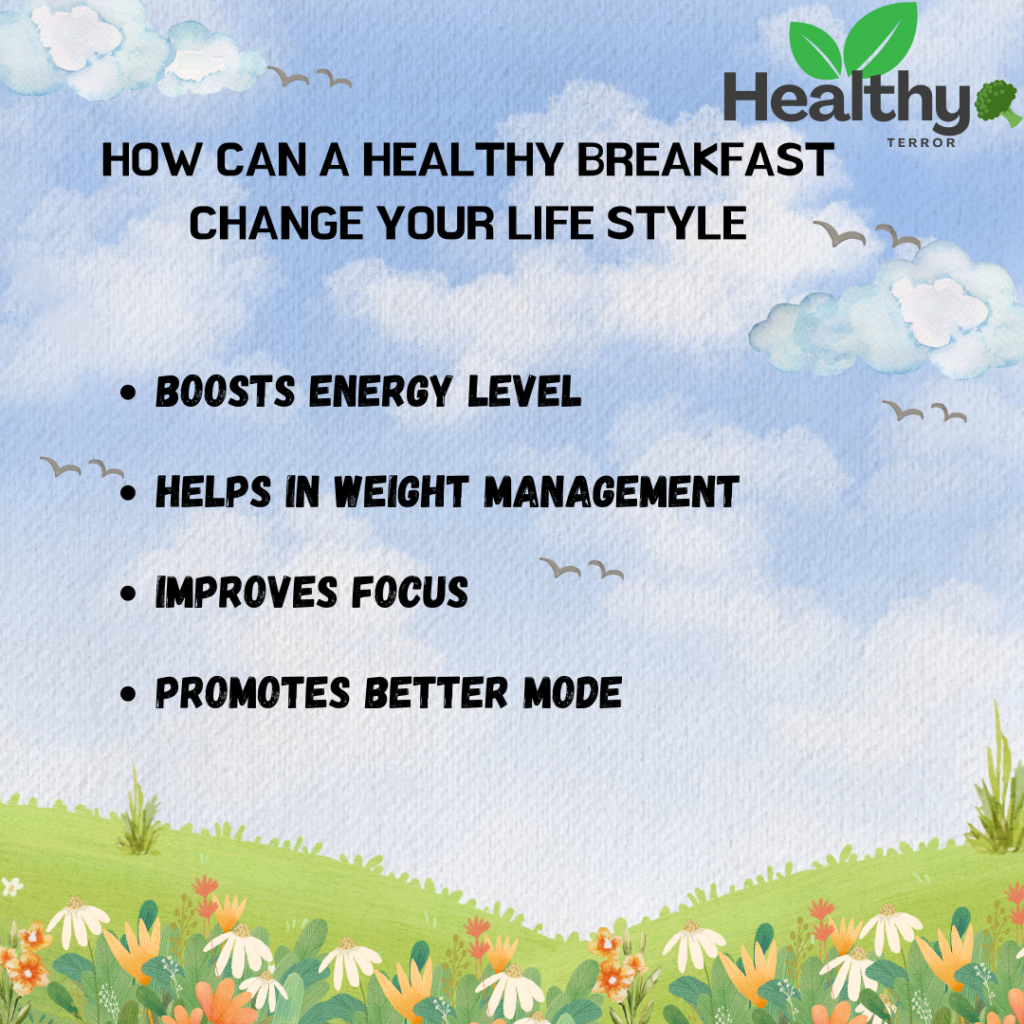Healthy Breakfast Options are essential for starting your day on the right foot. Whether you’re looking to fuel your body with nutrients, maintain energy throughout the morning, or simply enjoy a delicious and satisfying meal, choosing the right breakfast can make a world of difference. By incorporating a variety of balanced and nutritious options, you’ll set a positive tone for the rest of your day. Let’s explore some top picks to keep you energized and feeling your best.
Why a Healthy Breakfast Matters
You’ve probably heard this a lot: eating breakfast is healthy! Studies indicate that those who have breakfast are more likely to have lower serum cholesterol levels and those who miss breakfast are more likely to experience issues with their metabolism.
Common Breakfast Mistakes to Avoid
However, grabbing an iced coffee while racing to work or munching on a bag of chips doesn’t quite count as a nutritious breakfast.
The good news is, it’s easier than you think to prepare a healthy, balanced breakfast. Some of the best Healthy Breakfast Options are mentioned below:

1. OATMEAL
Oatmeal is an extremely nutritious food. It has beta-glucan, a thick, sticky fiber that may help decrease cholesterol and prolong feelings of fullness.

According to one study, those who had oatmeal for breakfast felt fuller than those who had cornflakes, and they also ate less at lunch. This was especially true for those who were obese. In addition, oats are high in potassium, folate, omega-3 fatty acids, and antioxidants. Steel-cut oats are a smart choice since they have a lower glycemic index (GI) than other varieties of oats and include more protein and fiber. A person’s blood sugar will rise less with a low GI.
2. NUTS AND NUTS BUTTER

Nuts are a great alternative for getting enough protein if one avoids eating animal products. Almonds also have heart-healthy lipids, potassium, magnesium, and antioxidants and they are considered as one of the most recommended healthy breakfast options.
Nut butter has a wide range of uses. Nut butter can be used as a fruit dip, spread on whole-grain toast, or combined with yogurt or oatmeal.
3. COFFEE

Coffee’s high caffeine content makes it a popular beverage to have with breakfast. Coffee’s antioxidants, which aid in reducing inflammation, provide additional health advantages.
Regular or decaffeinated coffee consumption may reduce the incidence of type 2 diabetes, according to an analysis published by the American Diabetes Association.
Additionally, the researchers hypothesized that some coffee-derived ingredients enhance glucose metabolism.
However, adding sugar or milk will lessen coffee’s health benefits. It’s better to use nonfat or plant-based milk in place of cream and to cut back on or completely avoid adding sugar to coffee.
4.BERRIES

Berries of all kinds, such as blueberries, strawberries, raspberries, and blackberries, are an excellent way to start the morning. They are low in calories, high in fiber, and contain disease-fighting antioxidants.
A study from the American Heart Association Trusted Source showed an association between a higher intake of the antioxidants found in berries and a lower risk of heart attack in young women.
Sprinkle berries on cereal, oatmeal, or yogurt, or blend them into smoothies. If fresh berries are costly or out of season, opt for frozen berries instead—they’re equally nutritious. However, it is best to choose frozen berries without any added sugar for optimal health benefits.
5.YOGURT

Probiotics, or gut-healthy bacteria, are abundant in yogurt and can serve as a fantastic base for breakfast. Though there are thousands of brands, formulae, tastes, and variations on the grocery store shelves, selecting an option for breakfast can be difficult.
Shvets suggests closely reviewing the ingredients listed on the yogurt. Certain yogurts are more akin to desserts due to their excessive added sugar content, which includes chocolate chips, cookie bits, and candies. According to her, yogurts containing fewer than 10 grams of sugar per serving would be healthier. She also points out that Americans should now be consuming no more than 10% of their calories from added sugars.
Pingback: FOODS THAT PRMOTE HAIR GROWTH - healthyterror